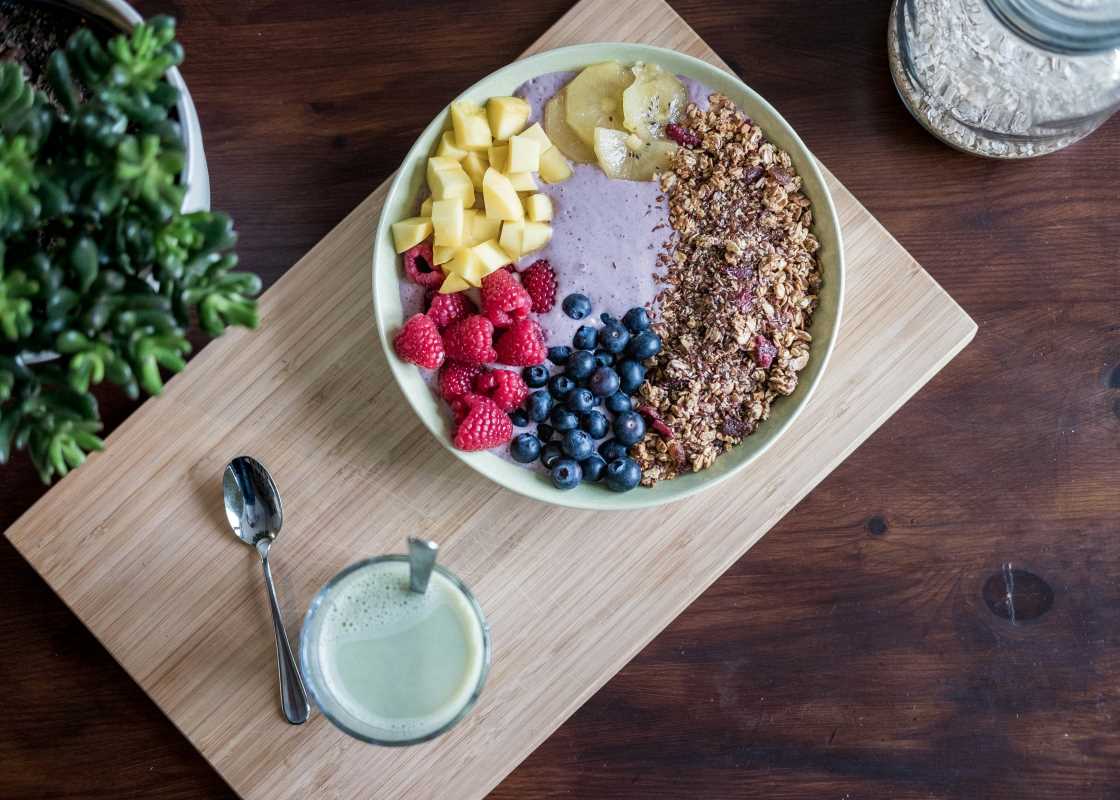In today’s fast-paced world, it’s easy to reach for quick fixes like caffeine or sugary snacks when your energy dips. These choices can provide a rapid jolt, but they come with a downside: a quick crash that leaves you feeling more drained than before. Constantly cycling through highs and lows can be exhausting, affecting your productivity, mood, and even long-term health.
For truly sustained energy, it’s best to fuel your body with nutrient-dense foods that promote stable blood sugar levels and support your metabolism. Here’s a guide to some of the healthiest foods you can eat to boost your energy levels naturally, offering lasting effects that keep you alert and focused throughout the day.
Whether it’s a steady breakfast or an energizing afternoon snack, these options can help power you through life’s demands.
Oats: A Perfect Breakfast Base
Whole grains like oats are an energy powerhouse, especially first thing in the morning. Oats contain complex carbohydrates that are digested slowly, releasing energy gradually rather than in one quick hit.
They’re also high in fiber, which helps maintain blood sugar levels, avoiding sudden energy drops. Oats contain B vitamins that help convert food into energy, and they’re a good source of iron, which is essential for oxygen transport in the blood.
For an extra boost, try adding chia seeds or nut butter for a balanced meal that includes healthy fats and protein.
Bananas: Nature’s Energy Bar
Bananas are often called “nature’s energy bar” for good reason. They are rich in natural sugars—glucose, fructose, and sucrose—that provide both immediate and sustained energy.
Bananas are also loaded with potassium, an essential mineral that aids in muscle function and helps prevent cramping, making them a favorite among athletes. The fiber in bananas slows down the digestion of sugars, keeping blood sugar levels stable and energy levels up.
Almonds: A Crunchy Source of Healthy Fats and Protein
Almonds are packed with healthy fats, protein, and fiber, making them an ideal snack for sustained energy.
The combination of monounsaturated fats and fiber provides a slow, steady release of energy, while the protein helps you feel fuller for longer. Almonds also contain magnesium, which plays a crucial role in energy production and helps to reduce muscle fatigue.
A small handful of almonds is a great pick-me-up mid-morning or mid-afternoon.
Quinoa: The Nutrient-Dense Grain Alternative
Quinoa is often celebrated as a “superfood” for its high protein content and abundance of essential amino acids. It’s also a complex carbohydrate, meaning it provides long-lasting energy.
Quinoa is rich in magnesium, phosphorus, and iron—all important for energy production and muscle function. It’s also naturally gluten-free, making it a versatile base for meals that won’t lead to the sluggish feeling sometimes associated with refined carbs. Add quinoa to salads, bowls, or enjoy it as a side dish with roasted vegetables for a complete meal.
Sweet Potatoes: A Carbohydrate-Rich Comfort Food
Sweet potatoes are a nutrient-rich, carbohydrate-heavy vegetable that provides long-lasting energy.
They’re packed with fiber, vitamin A, vitamin C, and complex carbohydrates that release energy steadily. Vitamin A and C both support immune function and help combat inflammation, while fiber aids digestion and maintains stable blood sugar levels.
Try them roasted, mashed, or as a baked side for a filling and energizing addition to any meal.
Greek Yogurt: High-Protein and Probiotic-Packed
Greek yogurt is an energy-boosting powerhouse due to its high protein content, which helps sustain energy levels without spikes and crashes. Protein is essential for building and repairing tissues, making it particularly valuable for those who lead active lifestyles.
Additionally, Greek yogurt contains probiotics, which support gut health. A balanced microbiome helps with the efficient absorption of nutrients that the body needs for energy. Add a handful of berries or a drizzle of honey for some natural sweetness and antioxidants.
Berries: Tiny Fruits, Big Benefits
Berries such as blueberries, strawberries, and raspberries pack a punch when it comes to energy. They’re rich in natural sugars and fiber, giving you a quick energy boost without a blood sugar crash. Berries are also high in antioxidants, which help reduce oxidative stress and inflammation—two factors that can sap your energy over time.
They’re a versatile snack and can be added to smoothies, yogurt, or oatmeal for extra flavor and nutrients.
Eggs: A Perfectly Balanced Protein Source
Eggs are one of the most versatile and nutritious foods you can eat. They contain high-quality protein, essential fats, and a range of vitamins, including B vitamins, which help your body convert food into energy.
Eggs also contain choline, a nutrient that supports brain health and helps maintain energy levels by aiding in cellular function. Scrambled, poached, or boiled, eggs make an excellent addition to your meal plan, especially if you’re looking for sustained energy and mental focus.
Spinach: Leafy Green with Iron Power
Spinach and other leafy greens are loaded with iron, an essential mineral for energy production.
Iron helps transport oxygen throughout the body, keeping cells energized and functioning efficiently.
Spinach also contains magnesium, potassium, and a range of B vitamins. These nutrients support muscle function, reduce fatigue, and maintain healthy blood pressure. Try adding spinach to smoothies, salads, or sautéed with a bit of olive oil for a nutrient-dense, energy-boosting side.
Water: The Ultimate Energizer
Although it’s not a “food,” staying hydrated is essential for maintaining energy levels. Even mild dehydration can lead to fatigue and a decrease in concentration and physical performance.
Water helps carry nutrients to cells and removes waste, ensuring your body functions optimally. If plain water isn’t appealing, try adding a slice of lemon or cucumber for flavor, or consider hydrating foods like watermelon and cucumber.
How to Build Your Energy-Boosting Meal Plan
For lasting energy, balance is key. Aim to combine complex carbohydrates, proteins, healthy fats, and fiber in every meal.
For example, a morning bowl of oatmeal with sliced bananas and almonds will give you a well-rounded mix of nutrients, while a lunch featuring quinoa, leafy greens, and a side of Greek yogurt provides the protein, iron, and slow-releasing carbohydrates needed for an afternoon pick-me-up.
Ultimately, the healthiest foods for energy are those that provide a balanced mix of nutrients, are minimally processed, and offer long-lasting fuel instead of quick spikes and crashes.
By incorporating these foods into your diet regularly, you can enjoy sustained energy that keeps you feeling focused, productive, and ready to take on whatever the day brings.
 (Image via
(Image via





